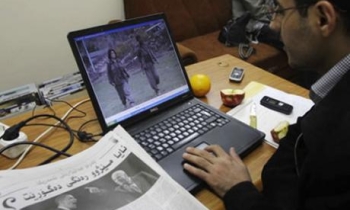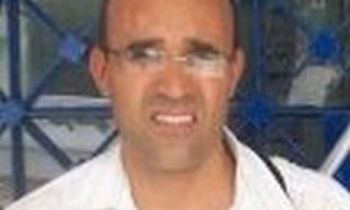The International Federation of Journalists (IFJ) has warned that France's imposition of a 12-day state of emergency and night-time curfews to curb street violence in major cities could lead to restrictions on press and media coverage of disturbances across the country. "These draconian rules will undermine the work of journalists and make an already difficult reporting environment even worse," said Aidan White, IFJ General Secretary.

The IFJ's French affiliate the Syndicat National des Journalistes has also expressed concern over the government's announcement which brings into force a 1955 law emergency law last used when France was trying to curb violence surrounding the struggle for independence in Algeria.
Journalists fear that local interpretation of the use of extended police powers and restrictions on freedom of movement of journalists will render meaningless an undertaking from Interior Minister Nicholas Sarkozy that the government would not invoke provisions in the law to control press of broadcast media.
"These are harsh powers that could limit free expression and will make it difficult for journalists to work," said White. "The French crisis will not be solved by actions that restrict media access to trouble spots. That will only create an atmosphere of increased ignorance and uncertainty."
As France reels under the riots, the violence has presented a tough challenge to the French media, with at least two television stations scaling back on mainstay TV images of fiery streets filled with burning vehicles to avoid stoking violence. Some channels also decided to not to provide the daily police numbers on cars burned overnight.
The television stations that ordered the holdbacks denied being influenced by the police, who insist that publicity about the riots has fuelled a syndrome of "copycat" violence, the Associated Press (AP) has reported. The stations said they want to avoid having youths manipulate the media to escalate the unrest, which erupted in a northeastern suburb of Paris and quickly moved across France.
Last week all-news TV channel LCI decided to stop showing the images of burning cars. "A burning car is extremely impressive," LCI weekend editor Laurent Drezner said, though the channel continues to show the blackened hulks of burned-out cars. "We are informing without sensationalism." Drezner said the station stopped broadcasting the fiery images after receiving a series of phone calls, apparently from troublemakers asking "Why haven't you sent cameras?"

Another station TFI, the most widely-viewed in France, also decided to withhold the images of burning cars and buildings, news director Robert Namias told the daily El Monde. France-3, a state-run channel, was withholding daily police tallies on the number of vehicles set on fire.
Several mediapersons, including Italian and Russian journalists, have been injured and material has been stolen. The IFJ expressed concern over the safety of journalists who report from areas where riots are taking place. The curfew does not help local or foreign correspondents to work in a safe environment according to the IFJ.
White said that the riots in France, which have exposed deep resentment felt by people in poor urban communities, many of the of North African origin, add to concerns that there is an increase in race-related social conflict in many countries of Europe.
"The riots in France, recent disturbances in England and the resurgence of racism in many parts of Europe pose an enormous challenge for journalists," said White. "Media and journalists need to provide coverage that will not add to divisions, but that will provide thoughtful reporting placing recent events in their proper context. The actions of the French government will not make that task any easier."
Meanwhile, the banners and bullhorns of protest are being replaced in volatile French neighbourhoods by blogs and mobile phone messages. Three persons have been arrested for comments on blogs hosted by Skyblog. The site belongs to the nationwide radio station Skyrock, which has four million listeners daily and claims the largest audience of any radio station among 13-to-24-year-olds.

Those prosecuted for inciting violence in their postings last week included a 14-year-old from Aix-en-Provence who called on rioters to attack police stations, Justice Minister Pascal Clément was quoted as saying in the International Herald Tribune. Blog entries of those arrested also included ones calling on youths in the Paris region to rise up at once in a coordinated attack.
"Unite, Ile-de-France, and burn the cops," one of the postings said, according to Agence France-Presse (AFP). "Go to the nearest police station and burn it." Under French law, such calls to violence can result in sentences of one to seven years in prison. Officials said the three youths arrested did not know one another, but had all used Skyblog to send out their message.
Following the arrests, a spokesman for Skyrock issued a statement that the station would block any blog content deemed too inflammatory. "Whatever you do, I do not want you to use my name," the spokesman added. "You can imagine from what is happening in the suburbs that if someone finds out that we deleted their blog, it could mean a bullet in the head."









